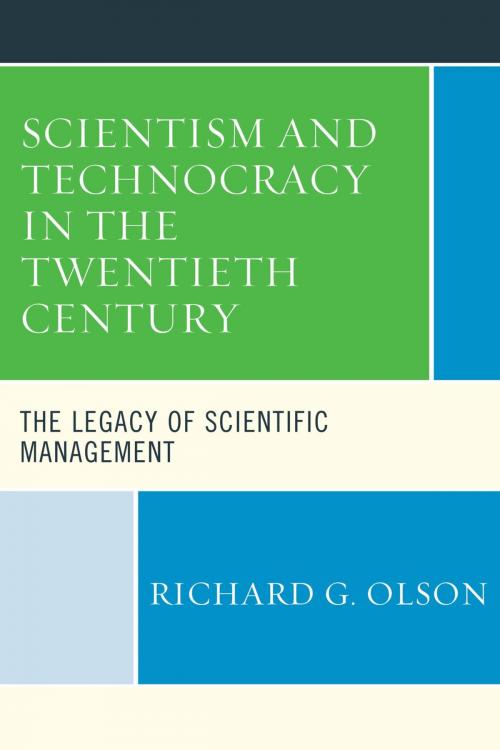Scientism and Technocracy in the Twentieth Century
The Legacy of Scientific Management
Nonfiction, Science & Nature, Science, Other Sciences, History, World History, Modern, 20th Century| Author: | Richard G. Olson | ISBN: | 9781498525718 |
| Publisher: | Lexington Books | Publication: | December 16, 2015 |
| Imprint: | Lexington Books | Language: | English |
| Author: | Richard G. Olson |
| ISBN: | 9781498525718 |
| Publisher: | Lexington Books |
| Publication: | December 16, 2015 |
| Imprint: | Lexington Books |
| Language: | English |
Scientism, or the application of methods, attitudes, and concepts drawn from the natural sciences to human activities and social policy formation, is a pervasive feature of modern life, and it is one which has immense impact upon virtually all aspects of our private and public lives. This work explores the impact of Scientific Management, a movement initiated at the beginning of the twentieth century by the mechanical engineer, Frederick Winslow Taylor, in spreading scientistic attitudes through its appropriation by technical experts (technocrats) who have played a central and growing role in formulating public policies, not just in the United States, but throughout the world. It explores the movement of Scientific Management out of its initial American industrial context into progressive politics in the United States, into the policies of the Third Reich, those of the Soviet Union under Lenin and Stalin, into Cold War policy formation in both the U.S. and the U.S.S.R , and into those of contemporary China and the European Union, with short but important excursions into France, Sweden, Japan, and the developing world. Moreover it also explores some of the aesthetic dimensions of scientism and technocracy, especially as they have been reflected in modernist architecture and literature, and it examines current trends in education and the structure of advisory organizations such as RAND Corporation which are shaping the character and impact of scientistic and technocratic attitudes. Overall the approach is ambivalent toward scientism, acknowledging some of its great strengths in promoting economic growth and providing advice on security related issues, but offering criticisms of its narrow emphasis on efficiency, its insensitivity to qualitative considerations and the experience of those with specialized local knowledge, and its long term tendency to ignore distributive justice and promote income concentration.
Scientism, or the application of methods, attitudes, and concepts drawn from the natural sciences to human activities and social policy formation, is a pervasive feature of modern life, and it is one which has immense impact upon virtually all aspects of our private and public lives. This work explores the impact of Scientific Management, a movement initiated at the beginning of the twentieth century by the mechanical engineer, Frederick Winslow Taylor, in spreading scientistic attitudes through its appropriation by technical experts (technocrats) who have played a central and growing role in formulating public policies, not just in the United States, but throughout the world. It explores the movement of Scientific Management out of its initial American industrial context into progressive politics in the United States, into the policies of the Third Reich, those of the Soviet Union under Lenin and Stalin, into Cold War policy formation in both the U.S. and the U.S.S.R , and into those of contemporary China and the European Union, with short but important excursions into France, Sweden, Japan, and the developing world. Moreover it also explores some of the aesthetic dimensions of scientism and technocracy, especially as they have been reflected in modernist architecture and literature, and it examines current trends in education and the structure of advisory organizations such as RAND Corporation which are shaping the character and impact of scientistic and technocratic attitudes. Overall the approach is ambivalent toward scientism, acknowledging some of its great strengths in promoting economic growth and providing advice on security related issues, but offering criticisms of its narrow emphasis on efficiency, its insensitivity to qualitative considerations and the experience of those with specialized local knowledge, and its long term tendency to ignore distributive justice and promote income concentration.















